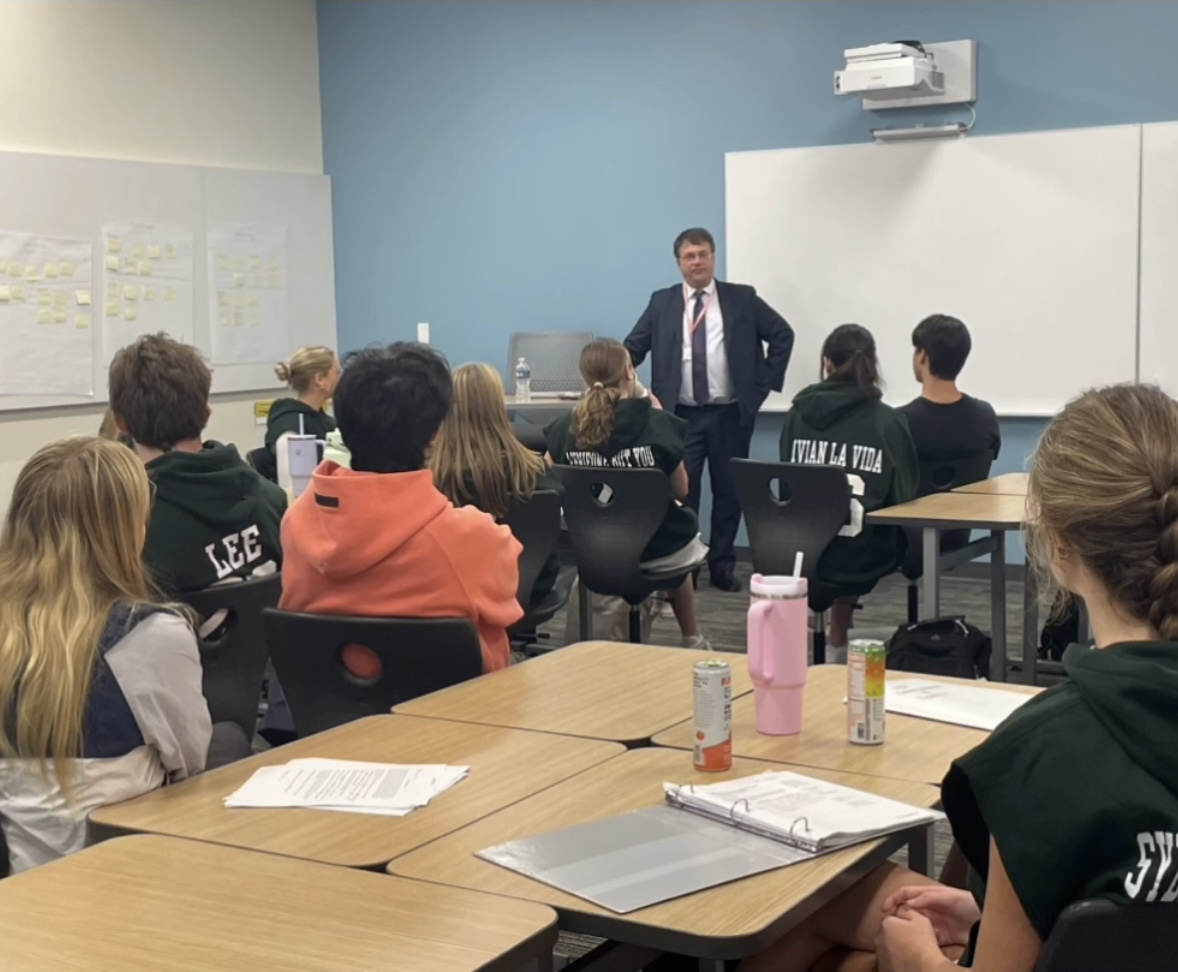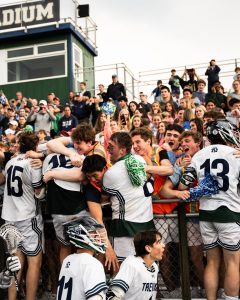Letter catches eye of NT administration
Former student criticizes school’s approach to LGBTQ+ issues
October 6, 2017
Over the summer, former student Nick Collins posted a “New Trier LGBTQ+ Open Letter Signatures” Google form on Facebook to get signatures to send to the administration about homophobia in the student body.
Collins, a senior at Brookline High School in Brookline, MA, wrote the letter after talking to a friend at New Trier. “They exemplified what was wrong with New Trier and I just realized that change needs to be made. I’m kind of fed up with what I experienced there.”
She believes Brookline High School has a more open and active LGBTQ+ community. “They have a day where LGBTQ+ students go up and share their stories about coming out to the whole school. They encourage conversation in classes and administration support,” she said. The Winnetka campus principal Denise Dubravec was emailed the letter after it got 150+ signatures. “It saddens me to think that a student would not have a good experience at New Trier,” she said. “I immediately wanted to reach out to her to understand her story and her experiences to understand what she went through and figure out what is it that I don’t know.”
According to surveys the student body takes every two years, LGBTQ+ students face the most risk for struggling with the school environment.
Dubravec plans to take action. She said, “Moving forward, this continues to be at the forefront of how we can support all students and this particular group of students who feel that it’s not a safe environment. We want everyone to be aware and be a little more mindful on what is happening in our classrooms.”
In her letter, Nick addressed her experiences on the track team. Athletic Director, Augie Fontanetta, said, “In terms of actions, we’re always talking to our coaching staff about how we can improve the program for all the students involved. We want our kids to have a great experience in the athletic programs. We want it to be an extension of the New Trier Motto and classroom.”
Collins hoped to start more conversation in the classroom. “In my classes [at New Trier], we would talk about race or something in the government, but we never talked about other social issues, especially about the LGBTQ+ community. There’s a lot of room for discussion. In my school, they added LGBTQ+ literature to our English curriculum,” she said.
Committed to Action Sponsor Rachel Hess agrees that conversation is a crucial part of change. “I think one of the biggest things is to listen to our students in club and to anonymously share their stories or the stories of friends and family, so we can be aware of those personal experiences. It’s always more powerful to hear from students then adults,” she said.
There are already plans being put into action to spread awareness for acceptance of all students. “Nick and I talked about working with the sponsors to see if we can get a group of students together to do a form of conversations,” Dubravec said. “I’m going to try to get a forum together that we can exchange information, ideas and thoughts about their experiences at New Tier.”
Along with creating a panel, some teachers have taken initiative and included a preferred pronoun section of their student information sheets. Collins said, “I’m trans and I use she or hers and that’s a big issue because I look very masculine. I wish we had some sort of nonverbal sheet, like New Trier because it’s so scary to come out to an entire class, and you never really know your environment.”
These forums can help introduce a stronger understanding between teachers and students. Hess said, “To me, it’s always an honor when a student shares that kind of information. The student, to a certain extent, is outing themselves, and there has to be that follow up conversation of whether or not they want to be referred to as that pronoun in front of their peers.”
As the school year progresses, students can expect to see more awareness. “At the end of October with the staff, we are doing some professional development on the topic of bias: bias on gender, bias on race, bias on sexuality—and how we transition that to the kids,” Dubravec said.
Even though students aren’t directly a part of those meetings, it’s important to keep the conversation going. Hess said, “That’s one of the best things the letter can do. Keep the conversation going.”












































